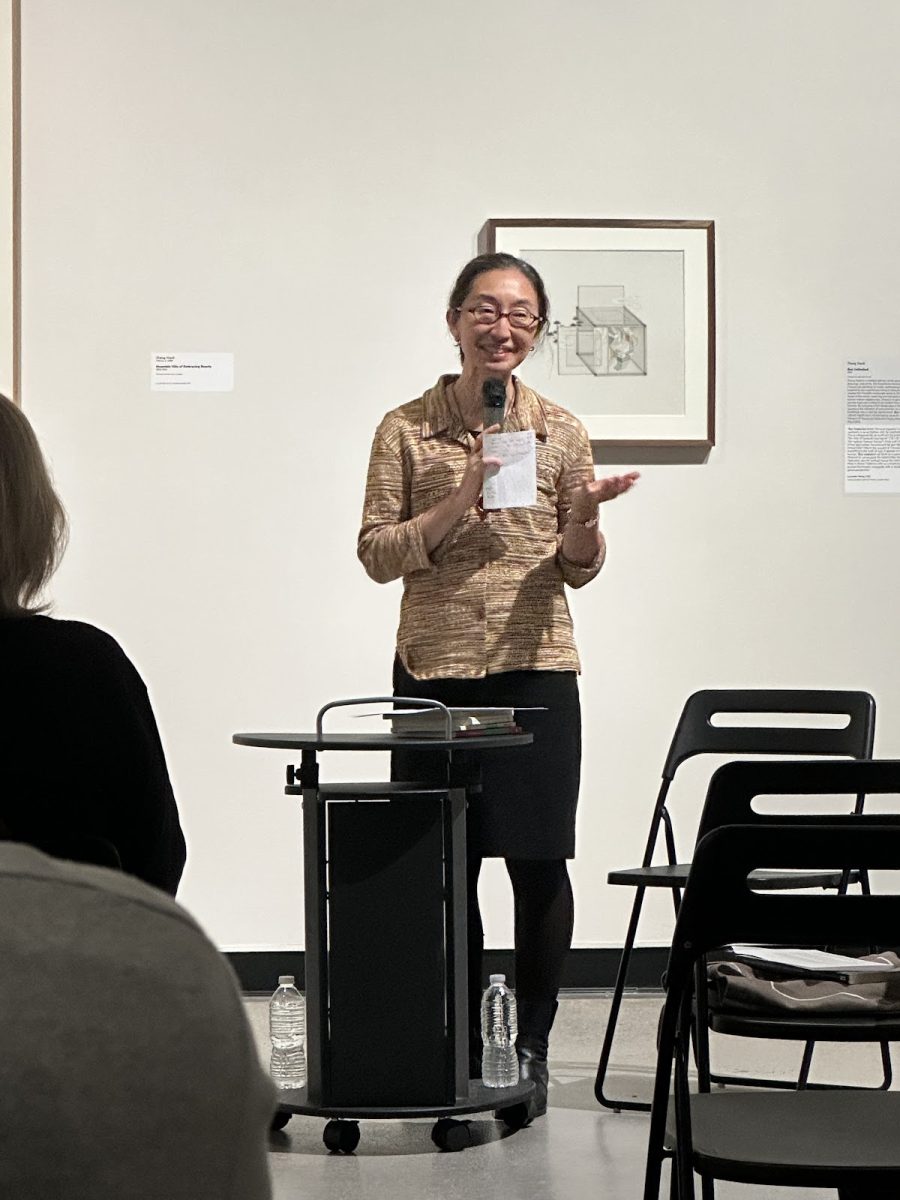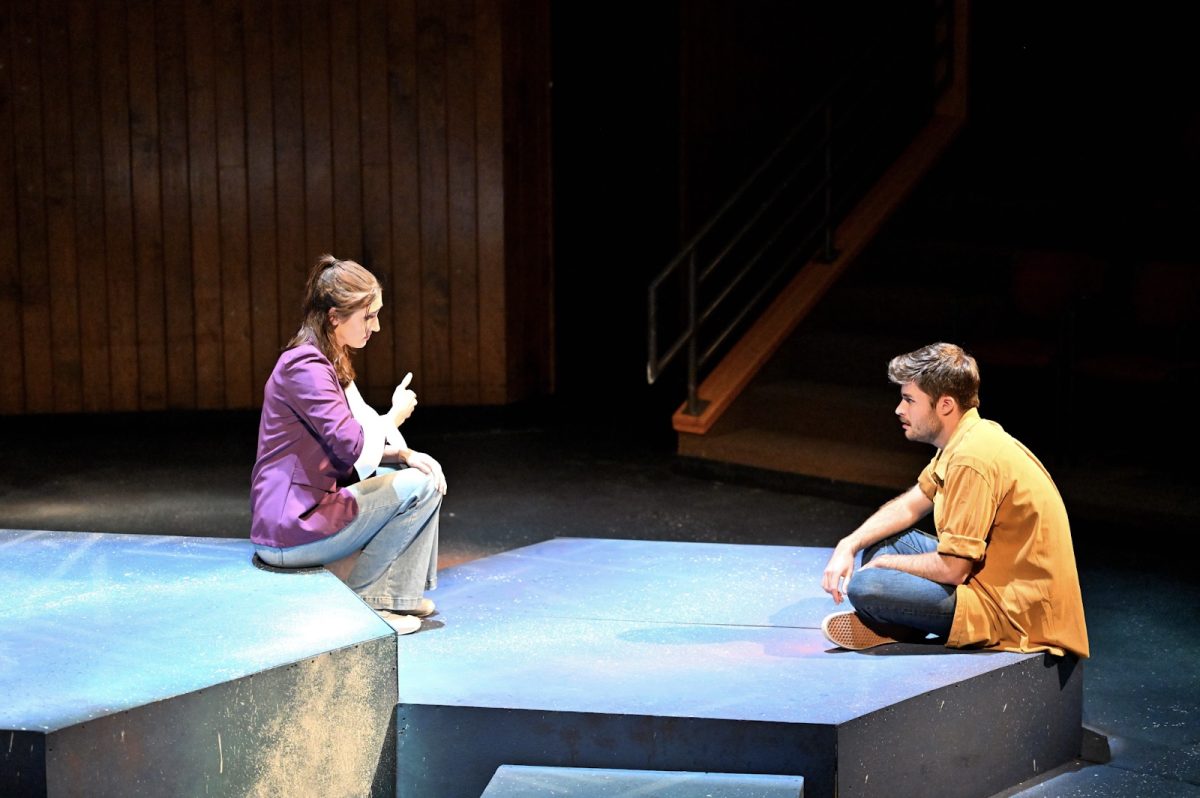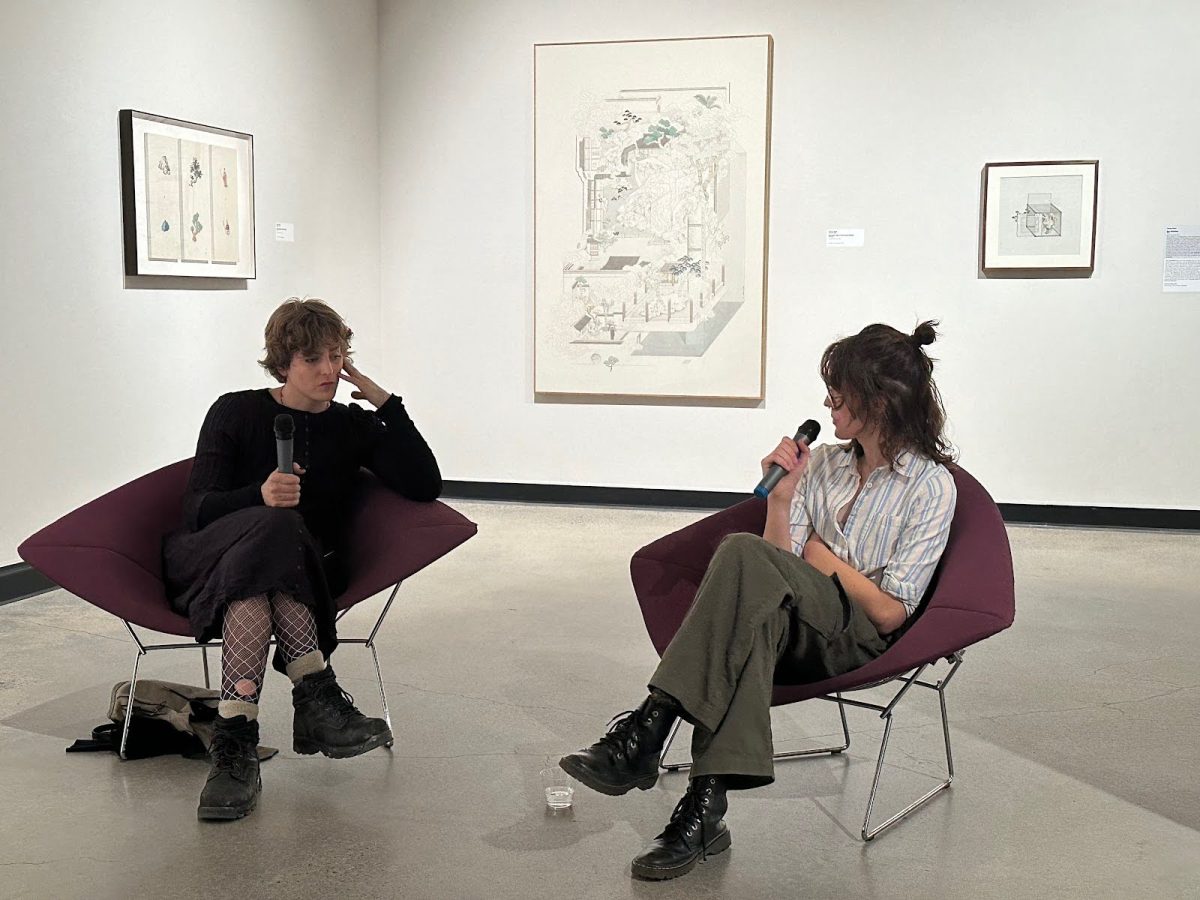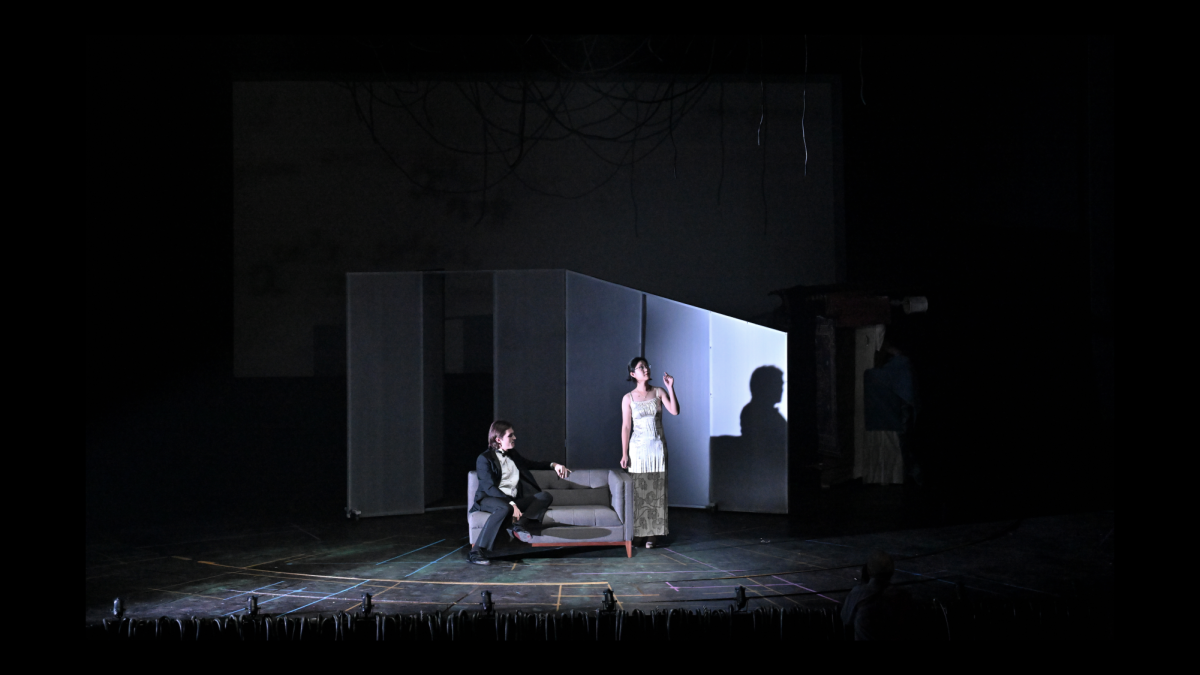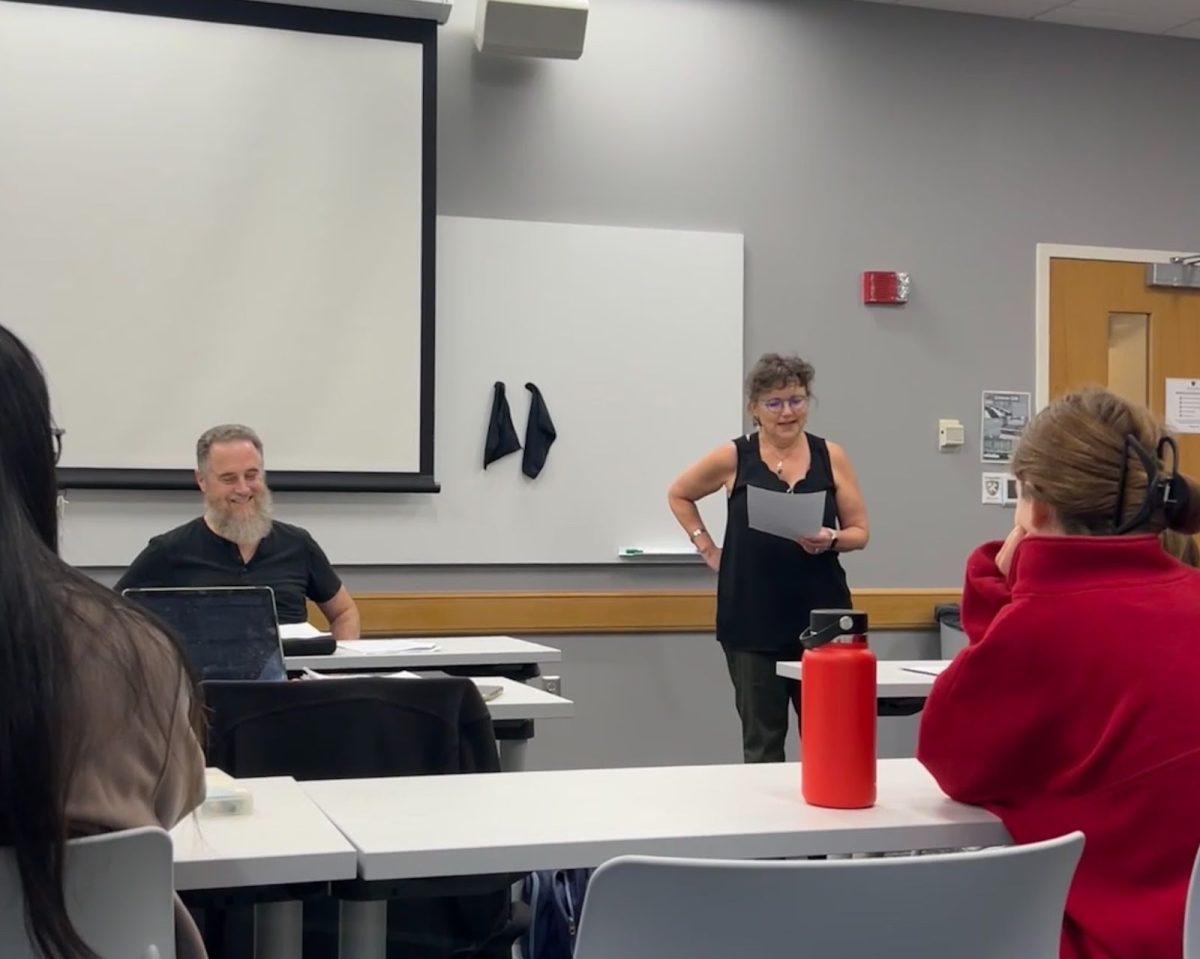Sawako Nakayasu is a poet and translator who has garnered international acclaim for her impressive command of English, Japanese and French and her distinct approach to translation. When she came to Wake Forest last week on Oct. 8 for a student writing workshop and a poetry performance in Hanes Art Gallery, she carried with her the questions that she takes everywhere in life: How does one translate a work of performance art? What does it mean to be faithful to an “original” text? How does one translate a poet’s unique idiolect? Is every translation doomed to be less valuable than its original? In what ways does translation (and micro-translation) unwittingly play a role in some of our most basic daily activities?
Nakayasu began her writer’s workshop in Benson Center by outlining her own philosophy and approach to translating, describing herself (somewhat jokingly) as an emancipated-ultra-idio-translator. In plain terms, this means that Nakayasu generally sees herself as a creative agent, not necessarily trying to preserve as much of the original meaning of the text as possible, but working to expand the text or highlight specific aspects. In “The Task of the Translator,” Walter Benjamin writes, “It is the task of the translator to release in his own language that pure language that is under the spell of another, to liberate the language imprisoned in a work in his re-creation of that work.” Nakayasu’s project takes as one of its axioms that it is impossible to liberate all of that “pure language” and reproduce it faithfully — instead, the task of the translator is to determine what is most crucial to revive, and what is the best way of going about it.
The reading and performance in the Hanes Art Gallery began with a collection of upcoming poems by Nakayasu. She said that the recurring subject of her latest work has been the aging of her father, who is nearing the end of his life. Nakayasu used to be unable to read from this collection without tearing up, but now she is much more responsive to the humor in them. “These are my dying dad poems,” she said with a laugh, before beginning to read.
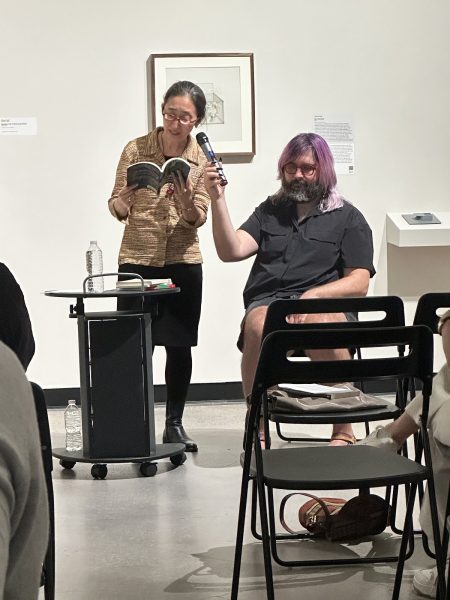
Next, she turned to her book “Pink Waves,” which “was completed in the presence of audience members over the course of a three-day durational performance.” Much of Nakayasu’s work is done extemporaneously, something I was able to witness firsthand in her writer’s workshop. She asked each of us in the workshop to bring in a piece of writing to share, which she then performed micro-translations on. Taking the syntax of one sentence and combining it with the vocabulary of another, or breaking apart and scrambling the words of one line to make another, Nakayasu demonstrated the professional practice of her craft. All of this work was done impromptu, as she responded to our suggestions and ideas in real-time, rattling off line after line of poetry which she could later sift through and edit to make a finished product.
This practice of receptivity and spontaneous generativity was on full display in the final act of her performance, in which Nakayasu solicited responses from the crowd to dictate her poetry. “What stuck out to me the most was when she invited people up to talk to them and figure out what they’re interested in, and then incorporated that person’s individual ideas into one of her poems or chose one that fit the theme,” senior Claire Bryant said regarding Nakayasu’s performance.
Indeed, Nakayasu modified and expanded her poems in real time to fit the vibe and responses of her audience. Bryant continued, “I also liked when she incorporated a little singing in her poetry,” as some of her poems are written to be sung aloud.
Translation matters. You are constantly translating, from the idiolects of those around you to signs on the street you are unfamiliar with. The passion inherent to disputes over translations — from texts as wide-ranging as The Bible to “The Vegetarian” by recent Nobel prize winner Han Kang — demonstrates just how sensitive and vital a subject translation can be. You can easily lose yourself in online forums debating the definitive translation of Dostoyevsky’s “Crime and Punishment” or Proust’s “In Search of Lost Time.” Meanwhile, insufferable snobs will say, “Read the original, or don’t even bother.” Don’t be like them. Read beyond the limits of your own language, the borders of your own nation — just don’t forget that what you’re reading took a whole host of creative decisions, some intentional, some completely unbeknownst to the translator.


